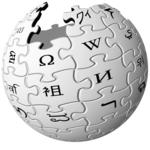Staging a NYT style intervention
At the Huffington Post, Arianna took some time away from politics to launch a campaign against the New York Times' apostrophe rules.
She was set off by the same things that set so many copy editors against NYT style rules -- apostrophes in plural numbers, apostrophes in plural initialisms. (She fails to mention the missing apostrophes in decades, such as 90's, though.)
She figured they were mistakes but then got a copy of The New York Times Manual of Style and Usage. Writers weren't breaking Times rules; they were following them!
That's when I decided to do something to stop the madness. It's time for regime change in apostrophe land. The good news is that vanquishing this enemy won't take congressional approval, a U.N. Security Council resolution, or the use of waterboarding.She follows with some oversimplified rules, but I won't knock her for the airing of grievances. I don't disagree.But neither can it be accomplished just by deploying a few unmanned apostrophe drones. No, this will require a coalition of journalists, copy editors, ad execs, teachers, and people like you and me willing to draw a line (albeit a small, crescent-shaped one) in the compositional sand. To say, "This will not stand." And, fortunately, we already have the Associated Press and major newspapers like the Los Angeles Times, the Boston Globe, and the Washington Post on our side.



